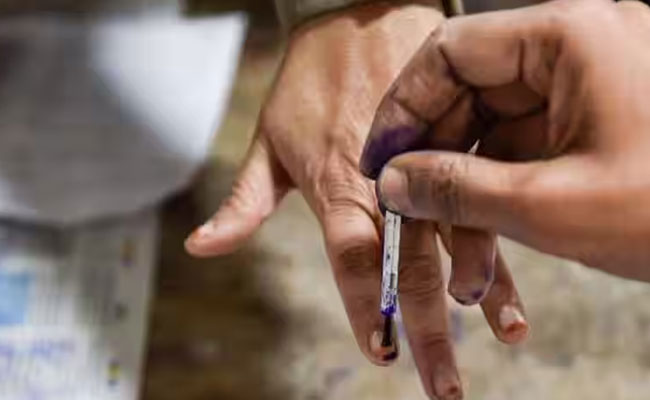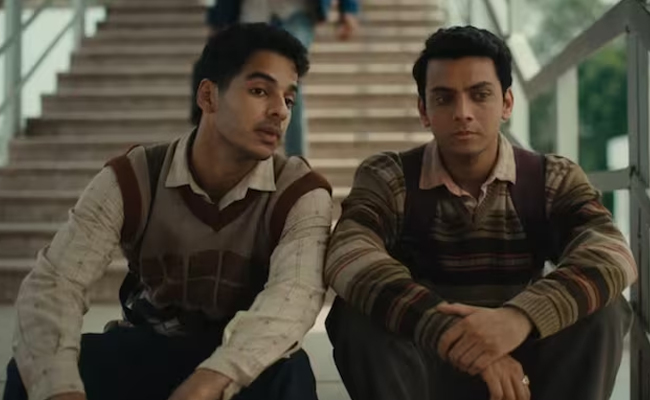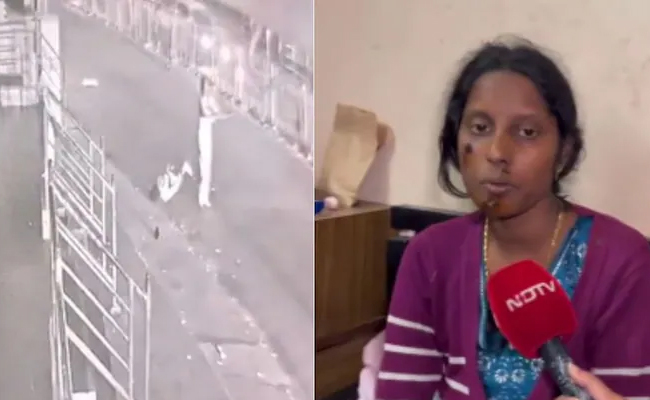Bengaluru (PTI): Voting was underway on Friday in the first phase of Lok Sabha polls in 14 constituencies in Karnataka.
Polling began at 7 am and will end at 6 pm.
A total of 247 candidates -- 226 men and 21 women -- are in the fray for the first phase covering most of the southern and coastal districts, where more than 2.88 crore voters are eligible to exercise their franchise in 30,602 polling stations.
The Congress and BJP are locking horns on the electoral battleground again in less than a year.
This election is witnessing a straight fight between the ruling Congress and the BJP-JD(S) combine unlike the Assembly elections in May last year which witnessed a triangular contest among the three parties.
The state has a total of 28 Lok Sabha constituencies. The second phase of polling in the remaining 14 seats is on May seven.
In the first phase, while the Congress is contesting in all 14 seats, BJP has fielded nominees in 11 and its alliance partner JD(S), which joined the National Democratic Alliance in (NDA) in September last year, in three -- Hassan, Mandya and Kolar.
Besides the three, the segments where elections are being held on Friday are: Udupi-Chikmagalur, Dakshina Kannada, Chitradurga, Tumkur, Mysore, Chamarajanagar, Bangalore Rural, Bangalore North, Bangalore Central, Bangalore South and Chikkballapur.
According to Election Commission, 1.4 lakh polling officials are on duty for the first phase.
Besides them, 5,000 micro-observers, 50,000 civil police personnel, and 65 companies of Central Paramilitary Force and State Armed Police force of other States have been deployed for security.
All the 2,829 polling stations of Bangalore Rural parliamentary constituency are being webcast.
"This is as per the request of our returning officers and observers; so we have given more than double the Central paramilitary force for Bangalore Rural constituency. Seven companies of Central paramilitary forces have been inducted at the constituency since April 22," Karnataka Chief Electoral Officer Manoj Kumar Meena has said.
In fact, out of the total 30,602 polling stations in the first phase, 19,701 are webcast, and 1,370 covered via CCTVs, he had added.
Chikkaballapur has a maximum number of 29 candidates, followed by 24 in Bangalore Central, and Dakshina Kannada has the least number at nine.
JD(S) leader H D Kumaraswamy from Mandya, his brother-in-law and noted cardiologist C N Manjunath from Bangalore Rural on a BJP ticket against Deputy CM D K Shivakumar's brother and MP D K Suresh of Congress, and erstwhile Mysuru royal family scion Yaduveer Krishnadatta Chamaraja Wadiyar from Mysore, from the BJP, are among the prominent candidates in the fray in the first phase.
Also in the contest are BJP MP Tejasvi Surya from Bangalore South pitted against Minister Ramalinga Reddy's daughter Sowmya Reddy of Congress, and Union Minister Shobha Karandlaje on BJP ticket from Bangalore North against former Indian Institute of Management Bangalore professor M V Rajeev Gowda of Congress.
Let the Truth be known. If you read VB and like VB, please be a VB Supporter and Help us deliver the Truth to one and all.
Mumbai (PTI): Neeraj Ghaywan's much acclaimed "Homebound" is among the 15 films shortlisted in the best international feature category at the Oscars, moving a step close to the final five nominations and maybe a win.
The movie, inspired by a true story that became the basis of a news article during the pandemic, has been creating a global buzz since its debut in the Un Certain Regard category at the Cannes Film Festival this May.
Hollywood legend Martin Scorsese is a fan and has come onboard as an executive producer ahead of the award season.
Produced by Karan Johar and Adar Poonawalla, and starring Ishaan Khatter, Vishal Jethwa and Janhvi Kapoor, "Homebound" is Ghaywan's second movie after "Masaan".
"Homebound" will compete for an Oscar nomination alongside Argentina's “Belén”, Brazil's “The Secret Agent”, French drama "It Was Just an Accident”, Germany's "Sound of Falling” and Iraq's "The President's Cake".
ALSO READ: Actress Shilpa Shetty's restaurant booked for breaching operating hours
The other movies in the shortlist include Japan's “Kokuho”, Jordan's “All That’s Left of You”, Norway's “Sentimental Value”, Palestine's “Palestine 36”, South Korean hit “No Other Choice”, Spain's “Sirat”, "Late Shift" from Switzerland, “Left-Handed Girl”from Taiwan and Tunisian drama “The Voice of Hind Rajab”, the Academy of Motion Picture Arts and Sciences announced in a release on Tuesday.
The award for best foreign film, now re-categorised as best international feature, has so far eluded India.
Only three Indian films have received nominations in the category -- Mehmood Khan’s “Mother India”, Mira Nair’s “Salaam Bombay” and Ashutosh Gowarikar’s “Lagaan”. Deepa Mehta’s “Water”, starring John Abraham and Lisa Ray, also received a nomination but it was submitted from Canada.
Gujarati film "Chhello Show" in 2023 was the last film to get shortlisted.
Costume designer Bhanu Athaiya was the first Indian to get an Oscar, bagging the coveted prize in 1983 for the film "Gandhi". Other than her, A R Rahman, Resul Pukootty and M M Keeravani have also won individual Oscars.
Team "Homebound" celebrated the shortlist news with posts on social media.
"We made the shortlist... Way to go team Homebound'!" Johar shared in Instagram Stories.
In a post, the producer said it was difficult for him to articulate how "proud and elated" he was with the news.
"All of us @dharmamovies are privileged to have this proud and important film in our filmography... thank you @neeraj.ghaywan for making so many dreams of ours come true... from Cannes to being on the Oscar shortlist this has been such an overwhelming journey! Love to the entire cast and crew and teams of this special special film! Upwards and onwards...."
Ghaywan also shared the news on X.
"#Homebound has been shortlisted for Best International Feature Film at the 98th Academy Awards! We are deeply grateful for the extraordinary love and support we've received from around the world," he wrote on X with a special poster of the film.
Jethwa, who plays one of the two friends in the story opposite Ishaan Khatter, said the moment feels "surreal and incredibly humbling".
"To see 'Homebound' being shortlisted and progressing towards the Oscars is something I could have only dreamed of. I am deeply grateful for the love and support the film has received from audiences around the world," he said as he acknowledged Johar, Ghaywan and co-star Khatter and the rest of the team.
Khatter also shared the news on his Instagram stories and wrote, "Oscar ab dur nahi".
ALSO READ: MGNREGA rename: Gandhi made ‘Raghupati Raghav Raja Ram’ national anthem, Kangana sparks row
"Homebound" is inspired by journalist Basharat Peer's The New York Times article “Taking Amrit Home”, also titled "A Friendship, a Pandemic and a Death Beside the Highway".
The film portrays the childhood friendship between a Muslim and Dalit who chase a police job that promises them the dignity they have long been denied due to their surnames.
The Academy on Tuesday also announced shortlists in 11 other categories, including the newly added casting Oscars, animated shorts, cinematography, documentary feature, documentary short, original score and song, sound and visual effects categories.
Nominations for the 98th Academy Awards will be announced on Thursday, January 22, 2026.
Twenty-four categories will be awarded at the 98th Oscars. Each category has five nominees, except for best picture, which has 10.
The 98th Oscars will be held on Sunday, March 15, 2026, at the Dolby Theatre in Los Angeles.





